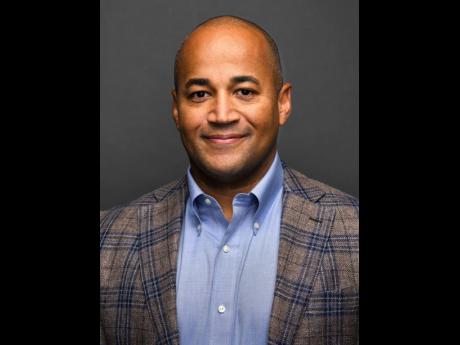Dante Disparte | America must lead on crypto regulation
In contrast to 2022, a disastrous year for digital asset markets, 2023 was characterised by aggressive regulatory action and positive market developments.
The recent settlement between United States regulators and Binance, the world’s largest cryptocurrency exchange, is poised to improve trust, transparency, and accountability throughout the market. Meanwhile, most global financial centres have introduced clear regulations for the crypto industry.
Despite this progress, the United States risks becoming an outlier if it does not establish new rules in 2024. Policymakers can choose among three potential paths to managing risks and opportunities in the crypto market: regulation, legislation, and designation.
Two years ago, US President Joe Biden took a huge step towards providing regulatory clarity by issuing his ‘Executive Order on Ensuring Responsible Development of Digital Assets’. Since then, however, legislative attempts have stalled, and the US has fallen behind other countries in regulating the sector despite the fact that virtually all digital assets are priced in dollars.
The irony is that US-led bodies such as the Financial Stability Board, the President’s Working Group on Financial Markets, and the Financial Stability Oversight Council, FSOC, have been at the forefront of global efforts to regulate the crypto market. As chair of the FSOC, Treasury Secretary Janet Yellen has also urged Congress to advance legislation to regulate dollar-denominated stablecoins. Federal Reserve Chair Jerome Powell has echoed these calls.
These calls for legislation, amplified by global regulatory bodies, underscore the potential risks associated with crypto. While some economists advocate drastic measures, such as allowing the industry to collapse or imposing stringent rules, a preferable approach would be to harness blockchain and other emerging technologies to ensure that financial services can meet market demand beyond conventional banking hours, a challenge that especially affects global payments. Given that nearly every major bank, asset manager, fintech, and payment-services company around the world has already developed digital-asset strategies, it is time for US policymakers to catch up and establish technology-neutral, principled regulations that foster competition in financial markets.
To this end, Congress must empower federal regulatory agencies to set rules for the market. This involves exploring central bank digital currencies despite opposition from politicians like former president Donald Trump, the Republican Party’s presumptive nominee in November’s presidential election. It also includes establishing regulations for digital wallets and streamlining state and federal banking and payment systems. These actions are crucial to averting a potential fintech “constitutional crisis” and maintaining America’s competitive edge.
The US Treasury Department has also emphasised the need for decisive action. In November, Deputy Secretary Wally Adeyemo called on Congress to address the risks posed by crypto-financed illicit activities, pointing to the opacity of certain crypto products and the lack of regulatory oversight. These products are, at best, financial alchemy; at worst, they are financial fentanyl.
The absence of a US regulatory framework for dollar-referenced stablecoins – increasingly licensed in jurisdictions like the United Arab Emirates, Singapore, and Hong Kong – represents a threat to American interests. This vacuum could incentivise the creation of products that exploit trust in the dollar while bypassing US regulations, potentially becoming a refuge for illicit actors.
At the very least, the US must ensure that foreign issuers of dollar-referenced stablecoins comply with the Bank Secrecy Act, anti-money laundering and counterterrorism laws, and sanctions regimes. Otherwise, digital dollars could undermine international security, rather than combat technology risks associated with dollar primacy.
But before the US designates crypto firms or technologies as threats, it must establish new rules. While there is already a precedent for labelling open-source technologies as national security risks, major token issuers or exchanges have not yet been classified as systemically important financial institutions, which would mark them as too big to fail. Instead of allowing offshore or near-shore crypto activities to proliferate unchecked or letting other countries set the standards for a market that is as inherently American as the internet once was, US policymakers must regard 2024 as a watershed moment.
The stablecoin bill advanced by the House Financial Services Committee in July 2023 has generated significant policy momentum. Bipartisan Congressional approval of this bill would offer the best legislative opportunity to tackle the surge in crypto dollar counterfeiting. Moreover, it could be America’s last chance to maintain its dominance in digital asset markets.
To be sure, forging ahead will be difficult during a contentious presidential election campaign. But advancing digital-asset policy is crucial to ensuring that the US remains a rule-maker rather than becoming a rule-taker. This is particularly critical now given that the European Union’s Markets in Crypto-Assets, or MiCA, framework is set to enter into effect later this year, potentially causing a transatlantic rift in digital-asset regulation.
To prevent such an outcome, the US policy agenda for digital assets this year must go beyond regulation, legislation, and designation, and focus on advancing global regulatory harmonisation. But these efforts are bound to fail without regulatory clarity and American leadership in the crypto market.
Dante Alighieri Disparte is Chief Strategy Officer and Head of Global Policy at Circle.© Project Syndicate 2024www.project-syndicate.org


